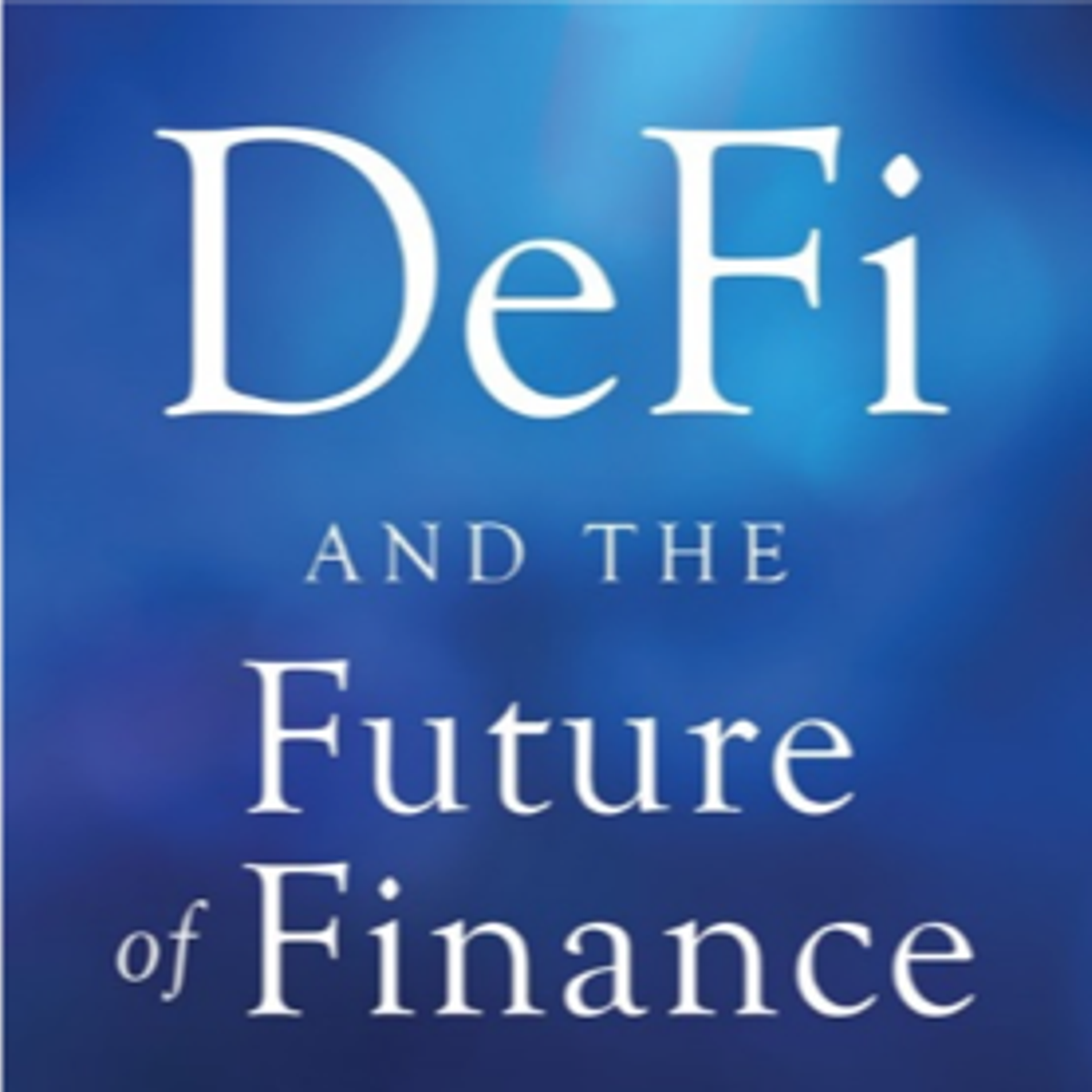Cryptocurrency Trader
A Comprehensive Guide to Becoming a Cryptocurrency Trader
A cryptocurrency trader is an individual who buys and sells cryptocurrencies with the aim of profiting from changes in their market prices. This involves speculating on price movements in various digital currencies like Bitcoin, Ethereum, and a multitude of other altcoins. Working as a cryptocurrency trader can be an intellectually stimulating endeavor, offering the chance to participate in a rapidly evolving financial market. The dynamic nature of cryptocurrencies means traders must constantly adapt to new information, technologies, and market sentiments, making it an exciting field for those who thrive on continuous learning and strategic thinking.
The allure of cryptocurrency trading often lies in its high volatility, which can lead to significant returns, albeit with correspondingly high risks. Many find the 24/7 nature of the market and the global accessibility of these digital assets to be particularly engaging. Furthermore, the underlying blockchain technology presents a fascinating intersection of finance, technology, and cryptography, appealing to individuals with diverse intellectual interests.
Introduction to Cryptocurrency Trading
Cryptocurrency trading is the act of speculating on cryptocurrency price movements via a trading account, or buying and selling the underlying coins via an exchange. It involves taking a financial position on the price direction of individual cryptocurrencies against the dollar (in crypto/dollar pairs) or against another crypto, as crypto to crypto pairs. The decentralized nature of these digital assets and the innovative technology underpinning them create a unique trading environment.
Definition of cryptocurrency trading
Cryptocurrency trading involves buying and selling digital currencies with the goal of making a profit. Traders analyze market trends, news, and technological developments to predict price movements. Unlike traditional stock markets, cryptocurrency markets are known for their high volatility and operate 24 hours a day, 7 days a week. This constant activity requires traders to be vigilant and adaptable.
The primary methods of trading include spot trading, where cryptocurrencies are bought and sold for immediate delivery, and futures trading, where contracts are made to buy or sell cryptocurrencies at a predetermined price on a future date. Margin trading, which allows traders to borrow funds to increase their position size, is also common but carries increased risk. Successful trading requires a deep understanding of market dynamics and risk management.
For those new to this domain, comprehending the fundamental concepts is crucial. Online courses can provide a structured way to learn about the intricacies of cryptocurrency trading and the blockchain technology that powers it.
These courses offer a solid foundation for anyone looking to understand the basics of blockchain and its applications in the world of cryptocurrency.
Distinction from traditional financial trading
While cryptocurrency trading shares some similarities with traditional financial trading, such as the use of technical and fundamental analysis, there are key differences. The cryptocurrency market is significantly more volatile and less regulated than traditional markets like stocks or forex. This high volatility can lead to substantial profits but also carries a greater risk of significant losses.
Traditional financial markets typically have fixed trading hours and are overseen by established regulatory bodies. In contrast, cryptocurrency markets operate continuously and have a more fragmented regulatory landscape, varying significantly by jurisdiction. The underlying assets themselves, cryptocurrencies, are also distinct; they are digital, decentralized, and rely on cryptographic security.
Understanding these distinctions is vital for anyone considering a career in cryptocurrency trading. It requires a different mindset and risk appetite compared to navigating conventional financial markets. The rapid pace of innovation and the constant emergence of new digital assets also differentiate crypto trading from its traditional counterpart.
Evolution of cryptocurrency markets
The cryptocurrency market has evolved dramatically since the inception of Bitcoin in 2009. Initially a niche interest for tech enthusiasts and cryptographers, it has grown into a multi-trillion dollar global market. Early trading was often conducted on rudimentary platforms with limited liquidity and security. Over time, more sophisticated exchanges have emerged, offering a wider range of trading pairs, advanced trading tools, and improved security measures.
The introduction of new cryptocurrencies, including Ethereum with its smart contract capabilities, spurred further growth and diversification within the market. The rise of Decentralized Finance (DeFi) and Non-Fungible Tokens (NFTs) has also created new trading opportunities and complexities. Institutional interest in cryptocurrencies has grown, bringing more capital and professional trading practices into the space, though this also means increased competition for individual traders.
This evolution has been characterized by periods of rapid growth, often termed "bull runs," followed by significant corrections or "crypto winters." Understanding this cyclical nature and the technological advancements driving market changes is crucial for long-term success as a trader. According to a report by the Atlantic Council, governments worldwide are increasingly looking to regulate this evolving market to mitigate risks while fostering innovation.
Role of blockchain technology
Blockchain technology is the foundational decentralized ledger system that underpins most cryptocurrencies. It allows for secure, transparent, and immutable recording of transactions without the need for a central intermediary. For a cryptocurrency trader, understanding blockchain is essential because the technology's characteristics directly influence a cryptocurrency's value, security, and utility.
Different cryptocurrencies utilize various blockchain architectures and consensus mechanisms (e.g., Proof-of-Work, Proof-of-Stake). These technical details can affect transaction speed, cost, scalability, and energy consumption, all of which are factors that traders consider. Innovations in blockchain technology, such as the development of Layer 2 scaling solutions or new privacy features, can also significantly impact a cryptocurrency's market sentiment and price.
Moreover, the security of a blockchain network is paramount. Vulnerabilities in the underlying code or consensus mechanism can lead to exploits and substantial losses, making a basic understanding of blockchain security crucial for traders. Familiarity with how blockchain works enables traders to better assess the long-term viability and potential of different crypto projects.
These courses delve into the business applications and foundational aspects of blockchain, which are invaluable for any aspiring cryptocurrency trader.
For those seeking to deepen their understanding, these books offer comprehensive insights into blockchain technology and its most prominent applications.
Key Concepts in Cryptocurrency Trading
Successfully navigating the world of cryptocurrency trading requires a firm grasp of several key concepts. These concepts form the bedrock upon which trading strategies are built and risk is managed. From understanding the inherent volatility of the market to mastering different analytical approaches and securely managing assets, these elements are crucial for anyone serious about trading digital currencies.
Volatility and risk management strategies
Volatility refers to the degree of variation in a trading price series over time, and it's a hallmark of cryptocurrency markets. Prices can experience rapid and significant fluctuations in short periods. While this volatility creates opportunities for profit, it also presents substantial risks. Effective risk management is therefore paramount for cryptocurrency traders.
Common risk management strategies include setting stop-loss orders to limit potential losses on a trade, take-profit orders to secure gains, and position sizing, which involves determining the appropriate amount of capital to allocate to a single trade based on risk tolerance. Diversification, while challenging in a market where many assets are correlated, can also play a role. Another key aspect is never investing more than one can afford to lose.
Understanding and quantifying risk, and then actively managing it, is a non-negotiable skill for survival and success in cryptocurrency trading. The psychological aspect of dealing with volatility and sticking to a risk management plan, even during market turbulence, is equally important.
Technical vs. fundamental analysis
Traders primarily use two methodologies to analyze cryptocurrency markets and make trading decisions: technical analysis and fundamental analysis. Technical analysis involves studying historical price charts and trading volumes to identify patterns and predict future price movements. Traders using this approach utilize various indicators like moving averages, RSI (Relative Strength Index), and MACD (Moving Average Convergence Divergence).
Fundamental analysis, on the other hand, focuses on evaluating the intrinsic value of a cryptocurrency. This involves examining the project's whitepaper, the technology behind it, the team's expertise, its use case and adoption rate, tokenomics (the economics of the coin, including supply and distribution), partnerships, and the overall sentiment in the community and broader market. Macroeconomic factors and regulatory news can also be part of fundamental analysis.
Many traders use a combination of both technical and fundamental analysis to make more informed decisions. While technical analysis can help identify short-term trading opportunities and entry/exit points, fundamental analysis can provide insights into the long-term potential of a cryptocurrency.
To gain practical skills in technical analysis and using trading platforms, these courses can be beneficial.
Cryptocurrency wallets and exchanges
Cryptocurrency wallets are digital tools that allow users to store, send, and receive cryptocurrencies. They come in various forms, including software wallets (desktop, mobile, web) and hardware wallets (physical devices that store private keys offline). Understanding how to use wallets securely, particularly the management of private keys, is crucial to protecting assets from theft.
Cryptocurrency exchanges are online platforms where users can buy, sell, and trade cryptocurrencies. They act as intermediaries, matching buyers with sellers. Exchanges vary in terms of the cryptocurrencies they list, trading fees, security measures, liquidity, and user interface. Some popular types include centralized exchanges (CEXs), which are operated by a central company, and decentralized exchanges (DEXs), which operate without a central authority, relying on smart contracts.
Choosing reputable wallets and exchanges with strong security features is essential. Traders must also be aware of the risks associated with leaving large amounts of cryptocurrency on exchanges, as these platforms can be targets for hackers. Using a combination of hot wallets (connected to the internet, for active trading) and cold wallets (offline, for long-term storage) is a common security practice.
Regulatory frameworks overview
The regulatory landscape for cryptocurrencies is still evolving and varies significantly from one country to another. Some nations have embraced cryptocurrencies with progressive regulations, while others have imposed strict limitations or outright bans. Common areas of regulatory focus include Anti-Money Laundering (AML) and Know Your Customer (KYC) requirements for exchanges, taxation of cryptocurrency gains, and the classification of different types of crypto assets (e.g., as securities, commodities, or utility tokens).
Traders need to stay informed about the regulatory developments in their jurisdiction and in major global markets, as these can significantly impact prices and market sentiment. For instance, news of a potential ban in a large economy can lead to market downturns, while news of regulatory clarity or approval of crypto-related financial products (like ETFs) can boost prices. The Financial Conduct Authority in the UK and the Securities and Exchange Commission (SEC) in the US are examples of bodies shaping these frameworks.
Understanding the legal and compliance aspects is not just about avoiding trouble; it's also about identifying opportunities and risks associated with regulatory changes. As the market matures, regulatory clarity is generally seen as a positive step towards wider adoption and stability, though the specifics of regulations remain a subject of much debate.
Required Skills for Cryptocurrency Traders
A successful career as a cryptocurrency trader demands a unique blend of analytical prowess, emotional fortitude, and technological awareness. The volatile and rapidly evolving nature of the crypto market means that traders must be adaptable and continuously learn. Excelling in this field goes beyond just understanding market charts; it requires a multifaceted skill set to navigate the complexities and pressures of trading digital assets.
Quantitative analysis proficiency
Quantitative analysis skills are crucial for interpreting market data, identifying trends, and developing trading strategies. This involves the ability to work with numbers, understand statistical concepts, and potentially use mathematical models to forecast price movements. Traders often analyze large datasets of historical prices, trading volumes, and other market indicators to make informed decisions.
Proficiency in tools like Excel or more advanced programming languages such as Python can be highly beneficial for data analysis, backtesting trading strategies, and even developing automated trading bots. The ability to critically evaluate data and distinguish meaningful signals from market noise is a key differentiator for successful traders.
While complex mathematical modeling isn't a prerequisite for all trading styles, a strong aptitude for quantitative reasoning allows traders to approach the market with a more systematic and data-driven mindset. This helps in moving beyond purely intuitive or emotional trading.
This course can help you build a foundation in using Python for practical applications, which can be extended to financial and trading contexts.
Emotional discipline in high-pressure environments
Cryptocurrency markets are known for their extreme volatility, which can create high-pressure situations. Emotional discipline—the ability to manage fear, greed, and stress—is arguably one of the most critical skills for a trader. Impulsive decisions driven by emotions are a common cause of significant losses.
Successful traders develop the ability to stick to their trading plan and risk management rules, even when faced with large price swings or a string of losses. This requires self-awareness to recognize emotional triggers and strategies to maintain composure, such as taking breaks, practicing mindfulness, or reviewing trades objectively.
The 24/7 nature of the crypto market can exacerbate emotional strain, potentially leading to burnout. Therefore, cultivating resilience and maintaining a balanced perspective are essential for long-term sustainability in this demanding field. As highlighted in an article from Forbes, crypto trading can be linked to lower quality of life and higher stress if not managed properly.
Understanding of macroeconomic indicators
While cryptocurrency markets were once seen as largely disconnected from traditional financial markets, they are increasingly influenced by broader macroeconomic trends and indicators. Factors such as inflation rates, interest rate decisions by central banks, geopolitical events, and overall global economic health can impact investor sentiment and capital flows into or out of crypto assets.
For instance, periods of high inflation have sometimes led investors to view Bitcoin as a potential hedge, similar to gold, driving up its price. Conversely, rising interest rates can make traditional, less risky investments more attractive, potentially drawing capital away from speculative assets like cryptocurrencies. Understanding these relationships helps traders anticipate potential market movements.
A good grasp of economics and how global events affect financial markets provides a valuable contextual layer to a trader's analysis. This allows for more nuanced decision-making beyond just looking at crypto-specific news or technical charts.
Cybersecurity awareness
Cybersecurity is a paramount concern in the cryptocurrency space. Traders must be acutely aware of the various threats, such as phishing scams, malware, hacking attempts on exchanges, and vulnerabilities in wallets or smart contracts. Losing crypto assets to theft is often irreversible due to the decentralized and sometimes anonymous nature of transactions.
Essential cybersecurity practices include using strong, unique passwords for all accounts, enabling two-factor authentication (2FA), being cautious about suspicious links and downloads, and keeping software updated. Understanding how to securely store private keys, perhaps using hardware wallets for significant holdings, is fundamental.
Traders should also be diligent in choosing reputable exchanges and platforms, researching their security measures and track record. Staying informed about common scam tactics and new emerging threats in the crypto world is an ongoing responsibility for anyone managing digital assets.
This course offers insights into understanding and securing digital assets, which is crucial for anyone involved in cryptocurrency trading.
Formal Education Pathways
While a specific "cryptocurrency trader" degree doesn't typically exist, several formal education pathways can provide a strong foundation for individuals aspiring to enter this field, especially those aiming for roles in larger financial institutions or crypto firms. A solid educational background can equip traders with analytical skills, financial literacy, and technological understanding. However, it's crucial to remember that practical experience and continuous self-learning are equally, if not more, important in this rapidly evolving domain.
Relevant undergraduate degrees (finance, computer science)
An undergraduate degree in finance is a common starting point for many aspiring traders, including those interested in cryptocurrencies. Finance programs typically cover financial markets, investment analysis, portfolio management, and risk management – all highly relevant to trading. This knowledge provides a framework for understanding market dynamics and valuation principles.
Alternatively, a degree in computer science can be exceptionally valuable. Given that cryptocurrencies are inherently technological, understanding programming, data structures, algorithms, and cybersecurity can provide a significant edge. This is particularly true for those interested in algorithmic trading, DeFi development, or deeply analyzing the technical aspects of blockchain projects. Some universities are also beginning to offer specialized courses or concentrations in blockchain technology or financial technology (FinTech) within these broader degree programs.
Other related fields of study can also be beneficial, such as economics, mathematics, statistics, or even business administration with a quantitative focus. The key is to develop strong analytical and problem-solving skills applicable to financial markets and technology.
These courses provide an introduction to digital currencies and the broader FinTech landscape.
Specialized master's programs
For individuals seeking more advanced knowledge, specialized master's programs can offer a deeper dive into relevant areas. Master's degrees in Financial Engineering, Quantitative Finance, Data Science, or Cybersecurity can provide highly sought-after skills. Some universities are now also offering Master's programs specifically focused on FinTech or Blockchain Technology.
These advanced programs often involve rigorous quantitative training, exposure to sophisticated financial modeling techniques, and opportunities to work on research projects related to digital assets or financial markets. Such qualifications can be particularly advantageous for those aiming for roles in quantitative trading firms, crypto hedge funds, or research positions within the cryptocurrency industry.
While a master's degree represents a significant time and financial commitment, it can enhance a candidate's profile, especially in a competitive job market. It demonstrates a high level of dedication and specialized expertise. However, for independent retail traders, such advanced degrees are not a strict requirement, though the knowledge gained would undoubtedly be beneficial.
Research opportunities in blockchain economics
The intersection of blockchain technology and economics is a burgeoning field of academic research. Universities and research institutions are increasingly exploring topics such as the tokenomics of various cryptocurrencies, the economic implications of decentralized autonomous organizations (DAOs), the efficiency of different consensus mechanisms, and the potential for blockchain to disrupt traditional financial systems. For students with a strong academic inclination, particularly at the master's or doctoral level, engaging in research in blockchain economics can provide deep insights into the fundamental drivers of value in the crypto space.
Research opportunities may involve working with faculty on specific projects, writing theses or dissertations on crypto-related topics, or contributing to academic publications. This path can lead to careers in academia, policy research, or specialized consulting roles within the cryptocurrency industry. The analytical rigor developed through research is also a valuable asset for sophisticated trading and investment strategies.
Understanding the economic principles governing these new digital asset classes can help traders move beyond surface-level analysis and develop a more profound understanding of long-term market trends and potential. As the crypto market matures, demand for individuals with deep expertise in blockchain economics is likely to grow.
Self-study resources for autodidacts
Formal education is not the only path to becoming a knowledgeable cryptocurrency trader. The field is rich with opportunities for self-study, and many successful traders are autodidacts who have taught themselves through a variety of resources. Online courses, like many available through OpenCourser's blockchain section, offer structured learning paths covering everything from basic blockchain concepts to advanced trading strategies.
Books written by experienced traders and technologists, whitepapers of various cryptocurrency projects, reputable financial news websites, and academic research papers are also invaluable. Many crypto projects have active online communities on platforms like Discord or Telegram where enthusiasts and developers discuss the technology and market trends. Participating in these communities can be a great way to learn and stay updated.
The key to successful self-study is discipline, a critical mindset to filter credible information from hype, and a commitment to continuous learning. The crypto space evolves rapidly, so traders must constantly update their knowledge. OpenCourser's extensive catalog of cryptocurrency courses and books can be an excellent starting point for any aspiring self-learner.
These courses are designed for individuals looking to gain a comprehensive understanding of cryptocurrency investment and the foundational technologies.
For those who prefer learning through reading, these books provide valuable insights into investing in crypto assets and understanding the underlying technology.
Independent Learning Strategies
For those charting their own course into cryptocurrency trading, especially career pivoters or individuals without a formal finance background, independent learning strategies are paramount. The dynamic and often unconventional nature of the crypto market lends itself well to self-directed study and hands-on experience. A proactive and disciplined approach to learning can be just as effective, and sometimes more relevant, than traditional educational paths in this rapidly evolving field.
Remember, the journey into cryptocurrency trading is a marathon, not a sprint. Embracing continuous learning and adapting to the ever-changing market conditions are key to long-term success. While the path can be challenging, the opportunities for growth and understanding in this innovative space are immense. Take the first step with curiosity and a commitment to responsible learning.
Building simulated trading portfolios
One of the most effective ways to learn the ropes of cryptocurrency trading without risking real capital is by building and managing a simulated trading portfolio. Often referred to as "paper trading," this practice involves using virtual money to execute trades on actual market data. Many cryptocurrency exchanges and trading platforms offer paper trading accounts or demo modes.
Simulated trading allows aspiring traders to test different strategies, familiarize themselves with trading platform interfaces, understand order types (e.g., market, limit, stop-loss), and experience the emotional ups and downs of trading in a risk-free environment. It's an opportunity to make mistakes and learn from them without financial consequences. Keeping a detailed journal of these simulated trades, noting the rationale behind each decision and its outcome, can significantly accelerate the learning process.
While paper trading doesn't fully replicate the psychological pressure of trading with real money, it's an invaluable tool for developing technical skills, refining strategies, and building confidence before committing actual funds. It helps in understanding how various market conditions affect a chosen strategy.
Analyzing historical market cycles
Cryptocurrency markets, like traditional financial markets, have exhibited cyclical patterns of boom and bust, often referred to as bull and bear markets. Studying historical market cycles can provide valuable insights into market behavior, potential price patterns, and the psychological factors that drive investor sentiment. This involves looking at past price charts, trading volumes, and correlating them with significant news events, technological developments, or macroeconomic trends.
Analyzing how different cryptocurrencies performed during previous cycles, which narratives gained traction, and how long different phases lasted can help traders develop a better sense of market dynamics. While history doesn't repeat itself exactly, understanding past patterns can help in identifying potential turning points or periods of heightened risk or opportunity. It also helps in setting realistic expectations about potential returns and drawdowns.
Resources for this type of analysis include charting platforms with historical data, crypto news archives, and research reports from various analysts and firms. This historical context can be crucial for developing longer-term trading perspectives and strategies.
Participating in trading communities
Engaging with cryptocurrency trading communities can be a rich source of learning and information. Online forums (like Reddit subgroups focused on specific cryptocurrencies or trading), social media platforms (especially X, formerly Twitter, where many analysts and traders share insights), and dedicated trading groups on platforms like Discord or Telegram can provide real-time discussions, news updates, and diverse perspectives.
However, it's crucial to approach these communities with a discerning eye. While valuable insights can be found, there is also a lot of noise, misinformation, and hype. Learning to filter credible information, identify experienced and knowledgeable contributors, and avoid falling prey to "pump and dump" schemes or overly optimistic (or pessimistic) sentiment is a skill in itself.
Active participation, such as asking thoughtful questions and sharing your own analyses (once you gain some experience), can enhance the learning process. These communities can also offer emotional support and a sense of camaraderie, which can be helpful in a field that can sometimes feel isolating. Networking with other traders can lead to shared learning and even collaborative opportunities.
Developing personal risk tolerance frameworks
A critical aspect of independent learning, and indeed of any trading endeavor, is understanding and defining your personal risk tolerance. This involves an honest assessment of your financial situation, investment goals, time horizon, and emotional capacity to handle potential losses. What might be an acceptable level of risk for one person could be devastating for another.
Developing a personal risk tolerance framework means setting clear rules for how much capital you are willing to risk per trade, per day, or overall in your trading portfolio. It involves deciding on appropriate leverage levels (if using margin trading) and understanding the potential downside of each position you take. This framework should be written down and strictly adhered to.
This process is deeply personal and may evolve over time with experience and changes in financial circumstances. Self-reflection, perhaps through journaling about your emotional responses to both winning and losing trades (even in simulation), can help refine this framework. A well-defined risk tolerance is the foundation of a sustainable trading career and helps prevent catastrophic losses.
These courses offer practical guidance on investing in cryptocurrencies and building trading systems, which can complement the development of personal risk frameworks.
For those looking to delve deeper into the technical aspects of prominent cryptocurrencies, these books are highly recommended.
Career Progression for Cryptocurrency Traders
The career path for a cryptocurrency trader can be diverse, ranging from independent retail trading to sophisticated roles within large financial institutions or specialized crypto firms. As the cryptocurrency market matures, opportunities are expanding, offering various avenues for professional development and specialization. The trajectory often depends on an individual's skills, risk appetite, initial capital, and networking abilities.
For those embarking on this journey, it's encouraging to know that the skills developed in cryptocurrency trading – such as analytical thinking, risk management, and adaptability – are highly valuable and can open doors to various opportunities, even beyond the crypto space itself. The key is continuous learning and a proactive approach to career development.
Entry-level roles in crypto firms
For individuals starting their careers, several entry-level positions in cryptocurrency firms can provide valuable experience and a pathway into trading or related roles. These might include roles like Junior Trader, Trading Analyst, Research Assistant, or Operations Specialist at a crypto exchange, hedge fund, or proprietary trading firm.
In such roles, individuals might support senior traders, conduct market research, analyze data, monitor trading systems, or help with trade execution and settlement. This offers a structured environment to learn from experienced professionals, understand institutional trading practices, and gain exposure to the operational side of the crypto markets. These positions often require a relevant bachelor's degree and strong analytical skills.
Even roles that are not directly trading-focused, such as in compliance, customer support, or marketing within a crypto company, can provide a foothold in the industry and opportunities to network and transition into trading roles later on. The rapidly growing nature of many crypto firms means internal mobility can often be faster than in traditional industries.
Transitioning from traditional finance
Professionals with experience in traditional financial markets, such as equity traders, forex traders, investment analysts, or portfolio managers, are often well-positioned to transition into cryptocurrency trading. Many of the core skills, including technical analysis, fundamental analysis, risk management, and understanding market psychology, are directly transferable.
The primary challenge for these professionals is often getting up to speed with the unique aspects of the crypto market, such as the underlying blockchain technology, the specific drivers of cryptocurrency value, the highly volatile and 24/7 nature of the market, and the evolving regulatory landscape. Taking specialized courses on cryptocurrencies and blockchain, and actively following industry news and developments, can bridge this knowledge gap.
Networking within the crypto community and showcasing a genuine interest and understanding of digital assets can help in making this transition. Many crypto firms value the discipline and experience that traditional finance professionals bring, especially as the market becomes more institutionalized.
Specialization paths (algorithmic trading, DeFi)
As traders gain experience, they may choose to specialize in specific areas of cryptocurrency trading. Algorithmic trading, or "algo trading," involves using computer programs to execute trades automatically based on predefined criteria. This requires strong programming skills (often in Python or C++), quantitative analysis capabilities, and the ability to develop and backtest trading strategies.
Another significant area for specialization is Decentralized Finance (DeFi). This rapidly growing sector involves trading, lending, borrowing, and providing liquidity on decentralized platforms using smart contracts. DeFi trading can involve complex strategies like yield farming, liquidity provision, and arbitrage across different protocols. It requires a deep understanding of blockchain technology, smart contracts, and the specific tokenomics of DeFi projects.
Other specializations could include focusing on specific types of crypto assets (e.g., NFTs, specific altcoin sectors), derivatives trading (futures, options), or becoming a market maker. Each path requires a distinct set of skills and knowledge.
These courses provide insights into DeFi and algorithmic trading, which are key specialization paths in cryptocurrency.
Entrepreneurial opportunities
The cryptocurrency space is ripe with entrepreneurial opportunities for experienced traders and technologists. Some traders may choose to start their own proprietary trading firms or crypto hedge funds. Others might leverage their expertise to create educational content, develop trading tools or software, or offer consulting services to individuals or businesses looking to navigate the crypto markets.
The innovative and rapidly evolving nature of blockchain technology also means there are opportunities to build new platforms, protocols, or applications related to trading, asset management, or other financial services. For example, developing a unique DeFi protocol, a new type of crypto wallet, or a specialized analytics platform could be entrepreneurial ventures.
Starting a business in the crypto space requires not only trading acumen and technical skills but also business development, marketing, and an understanding of the regulatory complexities. However, for those with a strong vision and the ability to execute, the potential rewards can be substantial in this burgeoning industry.
Risk Management in Cryptocurrency Trading
Risk management is arguably the most critical aspect of cryptocurrency trading. The market's inherent volatility, coupled with its unique characteristics, necessitates a robust and disciplined approach to mitigating potential losses. Failure to manage risk effectively is one of the primary reasons why many aspiring traders do not succeed in the long run. Understanding and addressing these risks is fundamental to building a sustainable trading career.
For those new to trading, especially in a market as dynamic as cryptocurrency, the allure of quick profits can sometimes overshadow the importance of capital preservation. It's essential to approach risk management not as a constraint, but as a foundational pillar that enables long-term participation and growth in the market. Remember, surviving to trade another day is a victory in itself.
Liquidity challenges in crypto markets
Liquidity refers to the ease with which an asset can be bought or sold without causing a significant change in its price. While major cryptocurrencies like Bitcoin and Ethereum generally have high liquidity on large exchanges, many smaller altcoins can suffer from low liquidity. This means that it might be difficult to execute large orders quickly without substantially affecting the market price, a phenomenon known as "slippage."
Low liquidity can increase trading risks. For example, a trader might not be able to exit a position at their desired price during a rapid market downturn if there aren't enough buyers. It can also lead to wider bid-ask spreads (the difference between the highest price a buyer is willing to pay and the lowest price a seller is willing to accept), increasing transaction costs.
Traders need to be aware of the liquidity profiles of the assets they trade and the exchanges they use. This involves checking order book depth, trading volumes, and being cautious with large orders in illiquid markets. Diversifying across exchanges can sometimes help mitigate platform-specific liquidity issues.
Tax implications and reporting
Taxation of cryptocurrency transactions is a complex and evolving area that traders must navigate carefully. Most tax authorities, like the Internal Revenue Service (IRS) in the United States, treat cryptocurrencies as property for tax purposes. This means that every taxable event, such as selling crypto for fiat currency, trading one crypto for another, or using crypto to pay for goods and services, can result in capital gains or losses that need to be reported.
Keeping meticulous records of all transactions, including dates, amounts, values in fiat currency at the time of the transaction, and any associated fees, is crucial for accurate tax reporting. The FIFO (First-In, First-Out) or LIFO (Last-In, First-Out) accounting methods might be applicable depending on the jurisdiction and specific circumstances. Given the complexity, many traders use specialized crypto tax software or consult with tax professionals familiar with digital assets.
Failure to comply with tax obligations can lead to penalties and legal issues. Staying informed about the tax regulations in one's country of residence is an essential responsibility for every cryptocurrency trader.
Security threats and mitigation
The digital nature of cryptocurrencies makes them a target for various security threats. These include hacking of exchanges, malware designed to steal private keys from wallets, phishing scams to trick users into revealing sensitive information, and SIM swapping to bypass two-factor authentication. The consequences of a security breach can be devastating, often leading to the permanent loss of funds.
Mitigation strategies are vital. Traders should use strong, unique passwords and enable two-factor authentication (preferably app-based or hardware-based rather than SMS-based) on all accounts. Storing significant amounts of crypto in secure hardware wallets (cold storage) rather than on exchanges (hot storage) is highly recommended. Being vigilant against phishing emails and messages, and verifying the authenticity of websites and software, is also crucial.
Regularly updating software, using reputable security software on devices, and being cautious about public Wi-Fi networks when accessing trading accounts are other important measures. Furthermore, understanding the security risks associated with smart contracts is important if trading in DeFi.
This course focuses on the vital aspect of securing crypto assets, a must-know for any trader.
Psychological impacts of 24/7 markets
The cryptocurrency market operates 24 hours a day, 7 days a week, across global time zones. This non-stop nature can have significant psychological impacts on traders. There can be a constant pressure to monitor price movements, a fear of missing out (FOMO) on opportunities, or anxiety about sudden market crashes happening while asleep or away from screens.
This can lead to stress, burnout, sleep disturbances, and difficulty maintaining a healthy work-life balance. The high volatility and potential for rapid gains or losses can also create an emotional rollercoaster, making it harder to stick to a disciplined trading plan.
Developing strategies to cope with these pressures is essential for long-term well-being and trading success. This might include setting specific trading hours, taking regular breaks, using alerts instead of constant monitoring, practicing mindfulness, ensuring adequate sleep, and maintaining social connections and hobbies outside of trading. Recognizing when to step away and seek support if feeling overwhelmed is also critical.
Ethical Considerations for Cryptocurrency Traders
Beyond the technical skills and financial acumen required, cryptocurrency traders should also be mindful of the ethical dimensions of their activities. The relatively new and less regulated nature of the crypto space presents unique ethical challenges that responsible participants need to consider. Navigating these issues with integrity contributes to the overall health and legitimacy of the ecosystem.
For those considering this career, especially individuals driven by a strong ethical compass, understanding these aspects is crucial. It's not just about profitability, but also about contributing positively, or at least not negatively, to the broader financial and social landscape. Thoughtful engagement with these issues can help shape a more responsible trading approach.
Market manipulation techniques
Cryptocurrency markets, particularly those for smaller, less liquid assets, can be susceptible to various forms of market manipulation. These tactics are designed to artificially inflate or deflate prices to benefit the manipulators, often at the expense of other traders. Common examples include "pump and dump" schemes, where a group colludes to buy an asset, hype it up to attract other buyers, and then sell off their holdings as the price peaks, causing it to crash.
Other manipulative practices include wash trading (where an entity simultaneously buys and sells the same asset to create a false impression of trading volume), spoofing (placing large buy or sell orders with no intention of executing them, to create a false sense of supply or demand), and spreading false rumors to influence prices. While regulators are increasingly cracking down on such activities, the global and often anonymous nature of crypto markets can make enforcement challenging.
Ethical traders should avoid participating in or promoting such schemes. Being aware of these tactics is also important for self-protection, to avoid becoming a victim. A commitment to fair market practices helps build trust and stability in the ecosystem.
Environmental impact of blockchain networks
Certain blockchain consensus mechanisms, particularly Proof-of-Work (PoW) used by Bitcoin and formerly by Ethereum, are energy-intensive. The mining process requires significant computational power, leading to high electricity consumption and a substantial carbon footprint, especially if the energy is sourced from fossil fuels. This has raised environmental concerns among the public and policymakers.
Traders should be aware of these environmental impacts when considering investments in different cryptocurrencies. Some newer blockchain projects use more energy-efficient consensus mechanisms like Proof-of-Stake (PoS) or other innovative approaches. The debate around the environmental sustainability of cryptocurrencies is ongoing, with efforts being made to transition to greener alternatives and utilize renewable energy for mining operations.
While an individual trader's actions may have a limited direct impact, being informed about these issues allows for more conscious investment decisions and participation in discussions about the future development of more sustainable blockchain technologies.
Regulatory arbitrage concerns
Regulatory arbitrage refers to the practice of exploiting differences in regulations between jurisdictions to gain an advantage. In the context of cryptocurrency, this might involve setting up operations or conducting trading activities in countries with more lenient or unclear crypto regulations to avoid stricter rules elsewhere, such as those related to taxation, KYC/AML, or securities registration.
While this may offer short-term benefits to some entities, it can create an uneven playing field and undermine efforts to establish consistent global standards for the crypto industry. It also poses risks, as jurisdictions with lax regulations can become havens for illicit activities, potentially damaging the reputation of the broader crypto ecosystem. Furthermore, regulatory landscapes can change rapidly, and what is permissible today might be restricted tomorrow.
Ethical considerations arise when traders or businesses actively seek to circumvent well-intentioned regulations designed to protect consumers or prevent financial crime. A long-term, sustainable approach to the industry generally favors operating in compliance with robust and transparent regulatory frameworks.
Social responsibility in decentralized finance
Decentralized Finance (DeFi) aims to create a more open, accessible, and transparent financial system. However, its rapid growth has also brought forth social responsibility considerations. These include issues like consumer protection (given the complexity and risks of some DeFi protocols), the potential for exacerbating financial inequality if access and understanding are limited to a select few, and the governance of these decentralized systems.
Ethical traders and participants in the DeFi space might consider the broader societal impact of the protocols and assets they interact with. This could involve supporting projects that genuinely aim to improve financial inclusion, are transparent about their risks, and have robust governance mechanisms. It also means being cautious about projects that seem overly speculative, lack clear utility, or have questionable tokenomics that could harm unsophisticated users.
As DeFi continues to evolve, the community of users, developers, and traders plays a role in shaping its ethical foundations. Promoting education, responsible innovation, and fair practices can help DeFi achieve its potential for positive social impact.
These books explore the revolutionary potential of blockchain and its business implications, providing context for social responsibility in this new financial era.
Cryptocurrency Trading in Global Markets
Cryptocurrency trading is an inherently global phenomenon. Digital assets can be traded across borders with relative ease, and markets operate continuously, influenced by events and participants from all corners of the world. This global nature presents both unique opportunities and distinct challenges for traders. Understanding the international landscape is crucial for anyone looking to engage seriously with cryptocurrency markets.
For those aspiring to trade in this global arena, it's important to remember that while opportunities abound, so do complexities. Staying informed about international developments, regulatory shifts, and cultural nuances can provide a significant edge. The interconnectedness of the crypto world means that what happens in one region can quickly ripple across markets worldwide.
Regional regulatory variations
As mentioned earlier, the regulation of cryptocurrencies varies dramatically from one region or country to another. Some jurisdictions, like Switzerland or Singapore, have developed relatively clear and often progressive frameworks to foster innovation while managing risks. Others, such as China, have imposed strict bans on cryptocurrency trading and mining. The European Union is implementing its Markets in Crypto-Assets (MiCA) regulation to create a harmonized framework across its member states.
In the United States, the regulatory approach is fragmented, with different agencies like the SEC (Securities and Exchange Commission), CFTC (Commodity Futures Trading Commission), and FinCEN (Financial Crimes Enforcement Network) asserting jurisdiction over different aspects of the crypto market, often leading to legal battles and uncertainty. These regional differences impact where exchanges can operate, what services they can offer, how crypto assets are taxed, and what AML/KYC obligations apply.
Traders need to be aware of the specific regulations in their own country of residence and, if trading on international platforms, understand the regulatory environment in which those platforms operate. Changes in regulation in major economies can have a significant impact on global market sentiment and prices.
Emerging market opportunities
Cryptocurrencies are seeing significant adoption and trading activity in many emerging markets. In some of these regions, factors like high inflation, currency instability, limited access to traditional banking services, and a young, tech-savvy population are driving interest in digital assets. Cryptocurrencies can offer an alternative store of value, a means for cheaper and faster remittances, or an avenue for investment and speculation.
This growing adoption in emerging markets can present unique trading opportunities. However, these markets may also come with higher risks, including greater regulatory uncertainty, potential political instability, lower liquidity for local currency pairings, and a higher prevalence of scams. Traders looking to capitalize on opportunities in these regions need to conduct thorough due diligence and understand the local context.
The development of localized crypto exchanges and payment gateways in emerging economies is a trend to watch. As infrastructure improves and regulatory frameworks become clearer, these markets could play an increasingly important role in the global cryptocurrency ecosystem.
This course explores how entrepreneurs in emerging markets can leverage blockchain technology, offering relevant insights.
Cross-border transaction complexities
While cryptocurrencies are designed to facilitate peer-to-peer transactions across borders, the practicalities of cross-border trading and fund movement can still be complex. These complexities often arise from differing regulatory requirements, particularly concerning AML/KYC and capital controls in various countries.
Transferring funds between international exchanges or from a bank account in one country to an exchange in another can sometimes face hurdles. Financial institutions may have their own policies regarding cryptocurrency-related transactions, and these can vary. Furthermore, the tax implications of cross-border crypto activities can be intricate, potentially involving reporting obligations in multiple jurisdictions.
Traders engaging in significant cross-border activities should be mindful of these potential complexities and may need to seek specialized advice. Understanding the terms of service of different exchanges regarding international users and fund transfers is also crucial.
Cultural influences on trading patterns
Cultural factors and regional preferences can sometimes influence trading patterns and the popularity of certain cryptocurrencies in different parts of the world. For example, specific social media platforms or local influencers might have a greater impact on investor sentiment in one region compared to another. The preferred use cases for cryptocurrencies (e.g., as a speculative investment, a means of payment, or a store of value) can also vary culturally.
Market activity can also show patterns based on time zones, with trading volumes sometimes increasing when particular regions (e.g., Asia, Europe, North America) are in their active trading hours. While the crypto market is global and interconnected, understanding these subtle regional nuances can sometimes provide additional context for market analysis.
However, it's important not to overstate these influences or rely on stereotypes. The primary drivers of cryptocurrency prices are usually a combination of technological developments, broader market sentiment, adoption trends, and macroeconomic factors, which often transcend cultural boundaries.
These courses offer a broader understanding of blockchain technology and its international implications, which can be valuable for navigating global markets.
Frequently Asked Questions
Embarking on a career as a cryptocurrency trader, or even just dabbling in it, often brings up a host of questions. The field is relatively new, highly dynamic, and can seem complex to newcomers. Addressing these common queries can help demystify the journey and provide realistic expectations for those looking to get involved.
Minimum capital requirements to start trading?
There's technically no strict minimum capital requirement to start trading cryptocurrencies, especially with the advent of fractional shares of coins. You can often buy very small amounts of cryptocurrencies like Bitcoin or Ethereum for just a few dollars on many exchanges. However, trading effectively and aiming for meaningful profits usually requires a more substantial starting capital.
The "right" amount depends heavily on your trading strategy, risk tolerance, and financial goals. Trading with very small amounts might limit the strategies you can employ and the potential returns, while also being disproportionately affected by transaction fees. Many experienced traders suggest starting with an amount you are entirely comfortable losing, given the high-risk nature of cryptocurrency trading.
Consider that to generate a significant income stream solely from trading, a larger capital base is generally needed. For those starting small, the focus should be on learning and gaining experience rather than expecting immediate large profits. Always prioritize risk management, regardless of your starting capital.
Career stability in volatile markets?
Career stability for a full-time cryptocurrency trader can be challenging due to the inherent volatility of the markets. Income can be inconsistent, with periods of significant profit potentially followed by periods of losses or stagnant market conditions ("crypto winters"). This lack of predictable income is a key factor that aspiring full-time traders must carefully consider and plan for.
Traders who work for established crypto firms, such as exchanges, hedge funds, or market makers, might experience more stability in terms of regular salary and benefits, though their performance and job security can still be influenced by market conditions. Independent retail traders bear the full brunt of market volatility on their income.
To enhance stability, traders often emphasize robust risk management, diversification of strategies (if possible), continuous learning to adapt to changing markets, and potentially having alternative sources of income, especially in the early stages of their trading career. Building up a financial cushion to navigate lean periods is also a prudent measure.
Transferability of skills to traditional finance?
Many skills developed in cryptocurrency trading are highly transferable to traditional finance. Analytical skills, including technical and fundamental analysis, are core to trading in any market. Risk management principles, such as position sizing and the use of stop-loss orders, are universally applicable.
The ability to make decisions under pressure, maintain emotional discipline, and adapt to rapidly changing information are also valuable traits in any financial trading role. Furthermore, if a crypto trader has developed quantitative skills, such as data analysis or algorithmic trading development (e.g., using Python), these are in high demand in traditional finance sectors like quantitative funds or FinTech companies.
Understanding of market psychology, liquidity dynamics, and even regulatory compliance considerations in the crypto space can provide a unique perspective that traditional finance employers might find valuable as the lines between digital and traditional assets continue to blur.
Age restrictions for cryptocurrency trading?
To trade cryptocurrencies on most centralized exchanges, users typically need to be at least 18 years old. This is because opening an account usually involves identity verification (KYC - Know Your Customer procedures) as part of regulatory compliance, and individuals must be of legal adult age to enter into such agreements.
For decentralized exchanges (DEXs) that don't require KYC, the technical barrier to entry might be lower, but users would still need to acquire cryptocurrency initially, often through a centralized platform or a peer-to-peer transaction where age could be a factor. Furthermore, managing private keys and understanding the risks involved is crucial, regardless of age.
It's important for younger individuals interested in cryptocurrency to focus on education and learning first. They can engage in simulated trading, study blockchain technology, and understand market dynamics before committing real funds when they are of legal age and have a full understanding of the risks involved.
Impact of quantum computing on crypto trading?
The potential impact of quantum computing on cryptocurrency is a topic of ongoing discussion and research. Current cryptographic algorithms used by most cryptocurrencies, such as those securing Bitcoin and Ethereum (e.g., ECDSA), are considered secure against classical computers. However, a sufficiently powerful quantum computer could theoretically break these algorithms, potentially compromising the security of existing wallets and transactions.
While large-scale, fault-tolerant quantum computers capable of posing such a threat are believed to be many years, if not decades, away, the crypto community is actively researching and developing quantum-resistant cryptographic algorithms. The transition to quantum-resistant cryptography would be a significant undertaking for the entire ecosystem.
For traders, the immediate impact is low, but it's a long-term technological risk to be aware of. Projects that are proactive in researching and planning for quantum resistance may be viewed more favorably in the very long term. The development of quantum computing is a factor that could influence the fundamental security assumptions of the current crypto landscape in the distant future.
Essential tools for monitoring global crypto markets?
Cryptocurrency traders use a variety of tools to monitor global markets and make informed decisions. Charting platforms like TradingView are essential, offering advanced charting capabilities, a wide range of technical indicators, and drawing tools to analyze price movements across numerous cryptocurrencies and exchanges.
News aggregators and crypto-specific news websites (e.g., CoinDesk, Cointelegraph, The Block) are vital for staying updated on market-moving news, regulatory developments, and project updates. Social media platforms, particularly X (formerly Twitter), and community forums like Reddit or Discord, can provide real-time sentiment and breaking information, though this needs to be filtered carefully.
Other useful tools include portfolio trackers (to monitor your holdings across different wallets and exchanges), on-chain data analytics platforms (e.g., Glassnode, Nansen) that provide insights into blockchain activity, and tools for tracking DeFi protocols. For algorithmic traders, access to exchange APIs (Application Programming Interfaces) and backtesting software is crucial. Having reliable, fast internet and a secure trading setup are also fundamental.
Further Resources
To continue your journey in understanding cryptocurrency trading, exploring reputable sources for ongoing learning is highly recommended. The landscape is constantly changing, and staying informed is key.
Consider exploring platforms like Forbes Crypto & Blockchain for news and analysis, or CoinDesk for dedicated cryptocurrency news. For broader financial education that can be applied to crypto, Investopedia is a valuable resource.
OpenCourser also offers a wide array of courses in Finance & Economics and courses on Blockchain technology that can help build a strong foundational knowledge for anyone interested in this field.
The path of a cryptocurrency trader is one of continuous learning, adaptation, and resilience. It offers the potential for intellectual stimulation and financial opportunity but comes with significant risks and demands a disciplined approach. By building a solid foundation of knowledge, developing essential skills, and maintaining a keen awareness of the market's evolving nature, individuals can navigate this exciting and challenging career. Whether you choose to trade independently or as part of a larger organization, the journey into cryptocurrency trading is a deep dive into the future of finance.

























